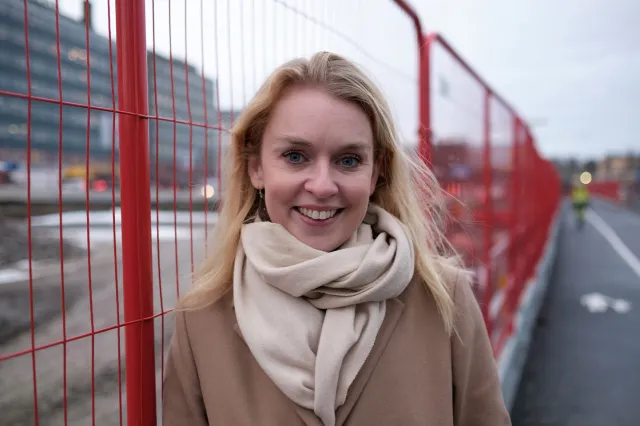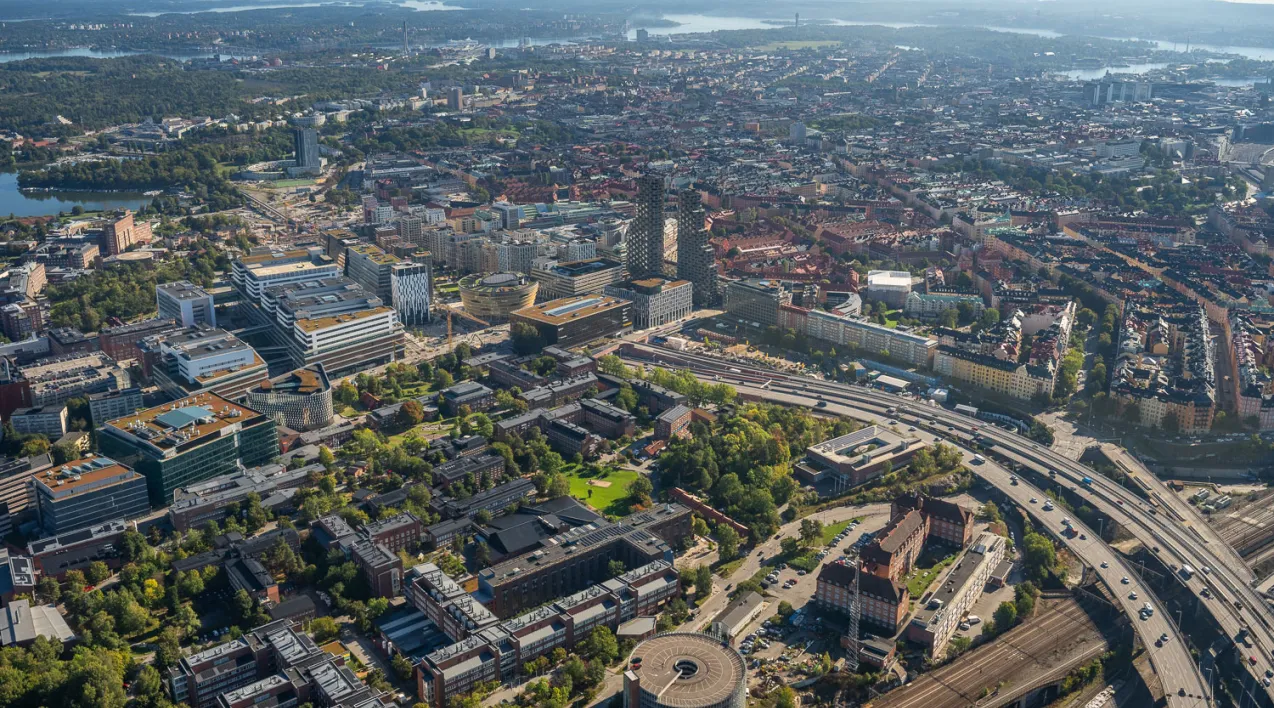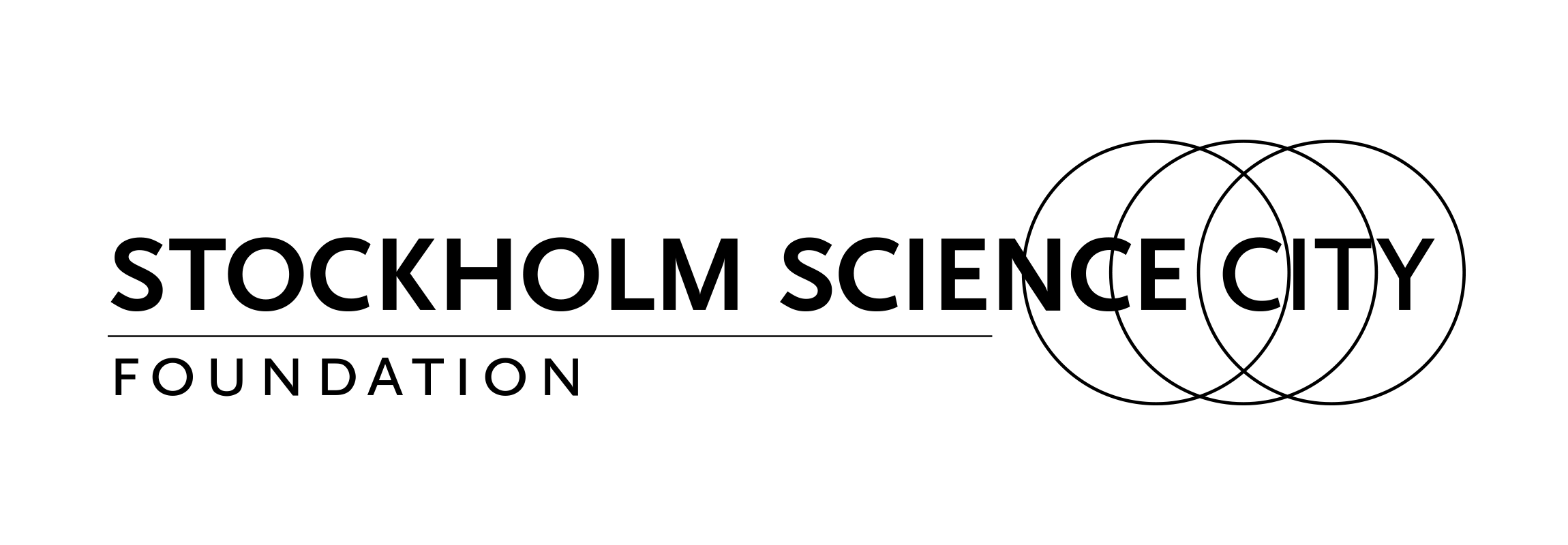Sustainability

From the very beginning, Hagastaden has been developed with sustainability at its core, driven forward by actors such as universities, hospitals, global companies, real estate developers, the city, and the region. This is how Stockholm Science City promotes sustainability through knowledge-sharing and collaboration:
A sustainable innovation district
Today, Hagastaden is home to 175 life science companies, three universities, and a university hospital. While the major players consider sustainability an integral part of their operations, around 70% of the companies in Hagastaden are small, with up to nine employees. Many of these small companies are in start-up phases, may not yet have a product or service on the market, and struggle to prioritise and address sustainability issues. Although they may not be directly subject to sustainability regulations, they are still indirectly affected—whether to attract investment, participate in collaborations, or develop commercially viable products or services. This issue is especially pertinent ahead of 2026, when simplified reporting requirements under the EU’s Corporate Sustainability Reporting Directive (CSRD) will apply even to smaller publicly listed companies.
Knowledge-sharing and collaboration as tools
A key aspect of Stockholm Science City’s work is sharing knowledge. Recognising that larger organisations are already actively engaged in sustainability, we focus particularly on small and medium-sized life science companies. To support these businesses, we organise seminars. Last autumn, for example, the company Gradientech presented their work and the support they received from STUNS life science, which helped them integrate sustainability early into their process. In another session, we hosted a panel discussion on the EU taxonomy and its implications for businesses.
At a time when misinformation and disinformation are identified as the greatest global risk in the two‑year horizon by the World Economic Forum’s Global Risks Report 2024, Stockholm Science City views knowledge‑sharing as especially vital. We use seminars, various meetings, newsletters, and social media to disseminate knowledge. By showcasing good practice in our channels, we aim to spotlight and inspire actors who are succeeding in their efforts. Since 2024, we have featured a “Monthly Sustainability Initiative” in our newsletter.
One group often highlighted as exemplars are the property developers. They have long upheld high sustainability standards, inspiring life science companies and offering premises with advanced environmental credentials.
Sustainable seminars
We host approximately one seminar per month, and in 2024 we introduced several measures to make these events more sustainable. For instance, we serve only vegetarian food and have implemented a “no-show fee” to minimise food waste—participants are reminded to cancel if unable to attend so catering can be adjusted. We also developed a sustainability evaluation form for caterers based on WWF’s One Planet Plate, covering the full chain from transport and ingredients to waste management. From 2025, we replaced paper sign‑in sheets with QR codes, saving countless printouts annually.
Internal sustainability efforts
Internally, we are actively reducing our climate footprint. All procurement, travel, and waste management are conducted with sustainability in mind, and we operate under collective agreements, reflecting our commitment to social responsibility.
Since our office is centrally situated in Hagastaden, staff primarily cycle or use public transport commuting to work. Most meetings are held locally, often within walking or cycling distance, or conducted digitally. On the few occasions we fly, we have chosen to offset our carbon emissions.
Text: Kajsa Liljegren, Process Leader at Stockholm Science City
More information
If you’d like to know more about our sustainability work or request our caterer evaluation form, please contact Kajsa Liljegren at kajsa.liljegren@ssci.se.

Monthly Sustainability Initiative
Here, life science actors share how they contribute to sustainable development. Take inspiration!

Hagastaden
Hagastaden is one of Europe’s leading innovation districts in life science. The high concentration of companies, healthcare providers, and universities in a central urban environment makes it a unique place for research and entrepreneurship in life science.



